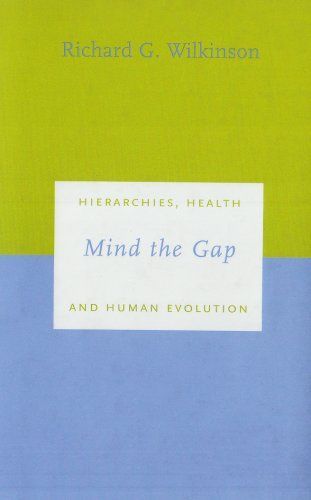
Mind the Gap Hierarchies, Health and Human Evolution
Inequality kills. Both rich and poor die younger in countries with the greatest inequalities in income. Countries such as the United States with big gaps between rich and poor have higher death rates than those with smaller gaps such as Sweden and Japan. Why? In this provocative book, Richard Wilkinson provides a novel Darwinian approach to the question. Wilkinson points out that inequality is new to our species: in our two-million-year history, human societies became hierarchical only about ten thousand years ago. Because our minds and bodies are adapted to a more egalitarian life, today's hierarchical structures may be considered unnatural. To people at the bottom of the heap, the world seems hostile and the stress is harmful. If you are not in control, you're at risk. This is a penetrating analysis of patterns of health and disease that has implications for social policy. Wilkinson concludes that rather than relying on more police, prisons, social workers, or doctors, we must tackle the corrosive social effects of income differences in our society.